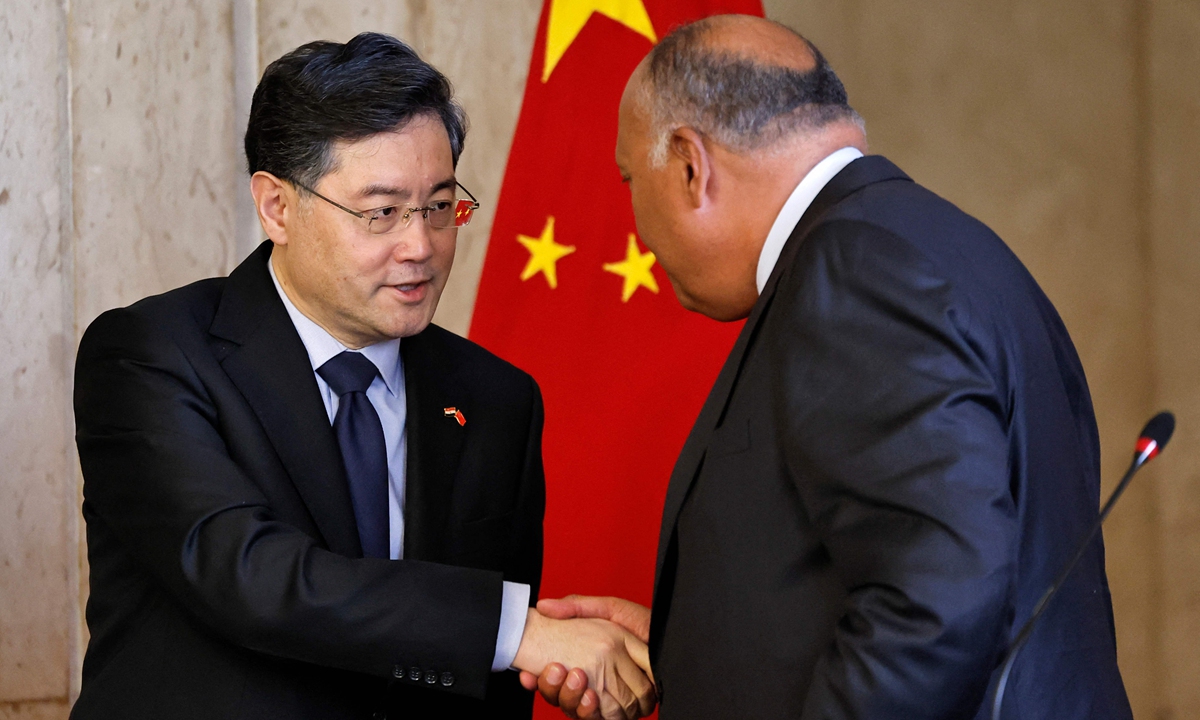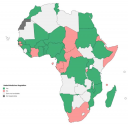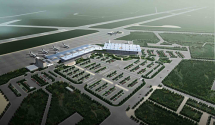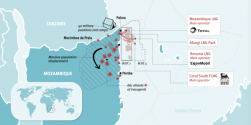China, Africa sign cooperation agreements in agriculture, water treatment
Updated 21:31, 15-Jan-2023 Cao Qingqing
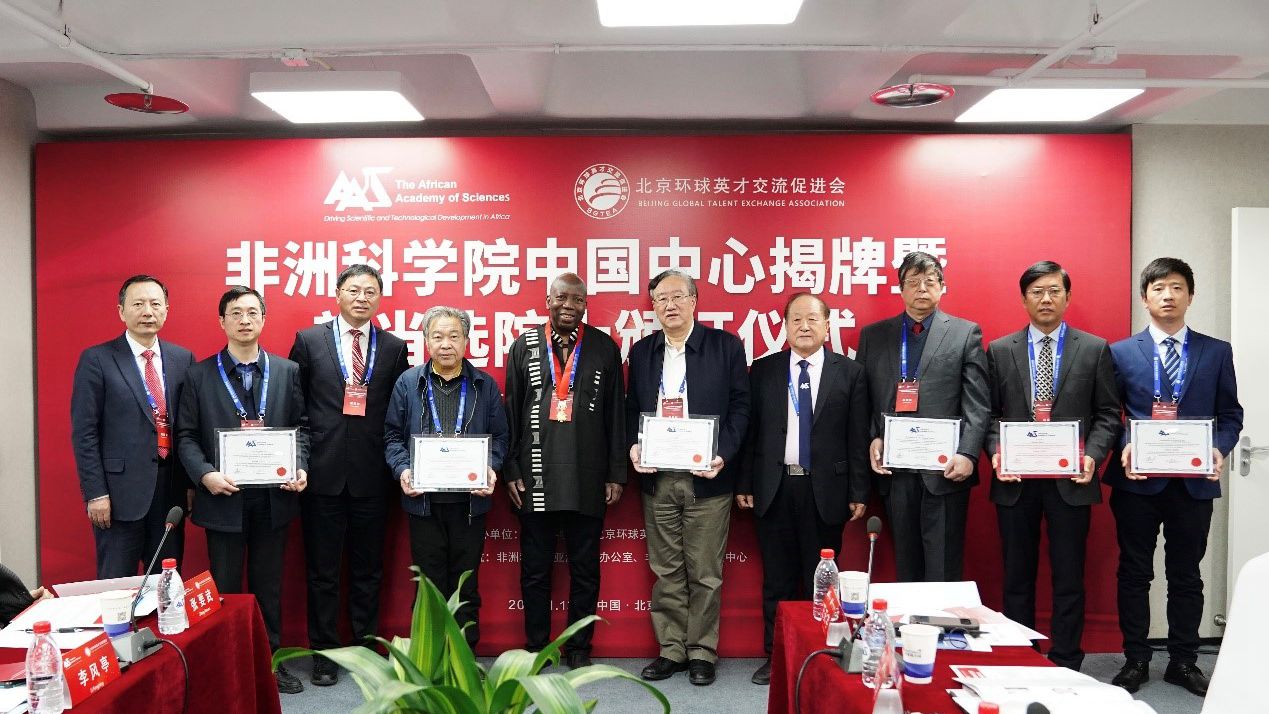
The China Center of the African Academy of Sciences is established in Beijing, China, November 13, 2022. /CGTN
The African Academy of Sciences (AAS), the highest academic institution in Africa, signed several cooperation agreements with Chinese research institutions, universities and companies in areas such as agriculture, water treatment and animal health care on Friday in Beijing.
The China Center of the AAS was also established on the same day, with the goal of promoting talent exchanges and science and technological cooperation between China and African countries.
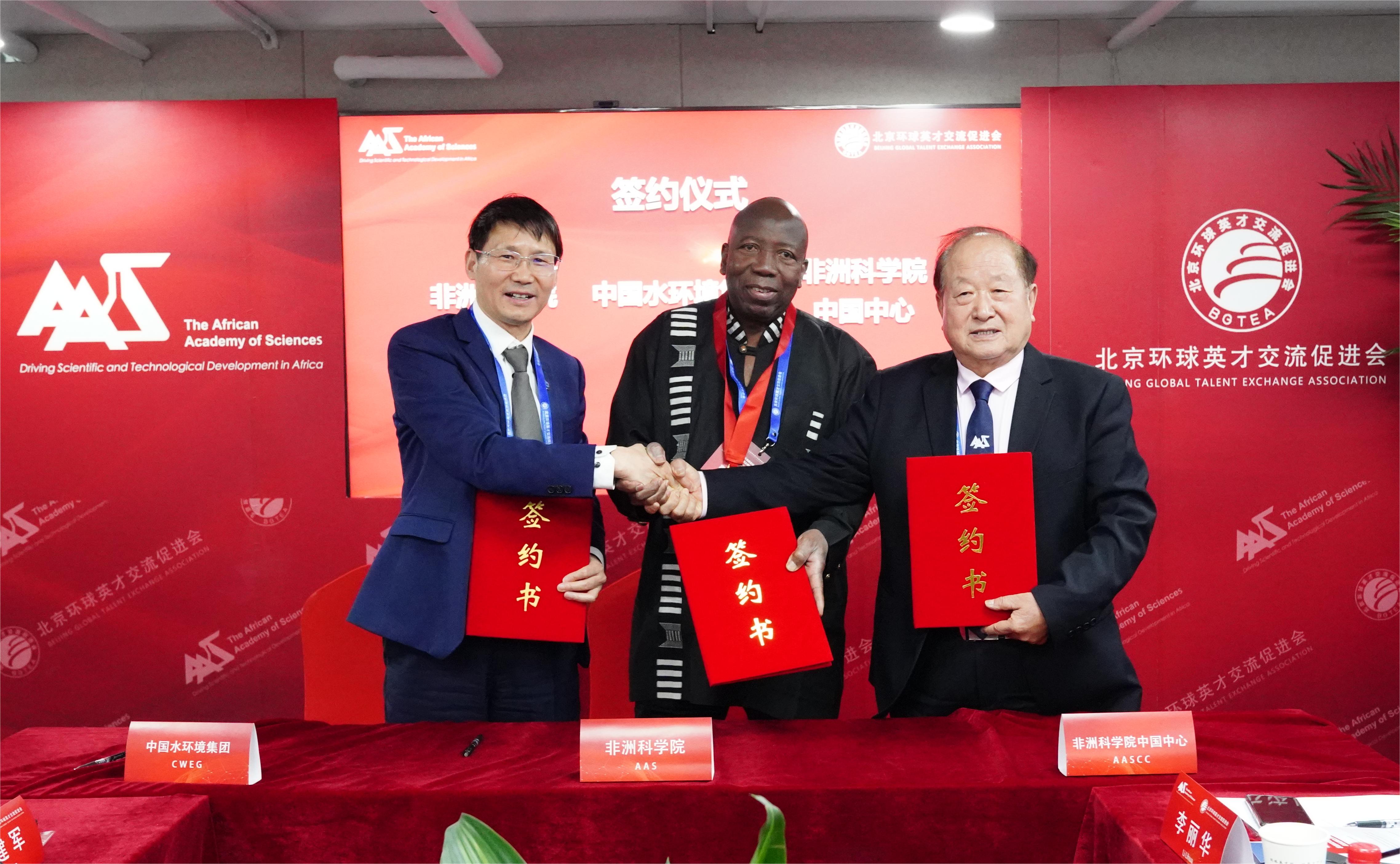
The African Academy of Sciences, its China Center and China Water Environment Group signed a strategic cooperation agreement in Beijing, China, November 13, 2022. /CGTN
The AAS, its China Center and China Water Environment Group (CWEG) signed a strategic cooperation agreement, under which the three sides will join hands to bring China's advanced waste water treatment technology to African countries.
CWEG's latest waste water treatment technology adopted in Erhai Lake, a famous tourist attraction in southwest China's Yunnan Province, just won a silver award at the 2022 International Water Association World Water Congress & Exhibition held in November 2022 in Copenhagen, Denmark for its significant innovations and contributions to the sustainable development of water resources.
The three parties signed another agreement to improve the soil health and crop management and promote smart water-saving irrigation technologies in Africa, so as to improve the agricultural productivity and promote sustainable development on the continent.
Hebei Agricultural University, one of the oldest agricultural higher education institutions in China, also signed an agreement with the AAS to strengthen exchanges and research cooperation between the two institutions.
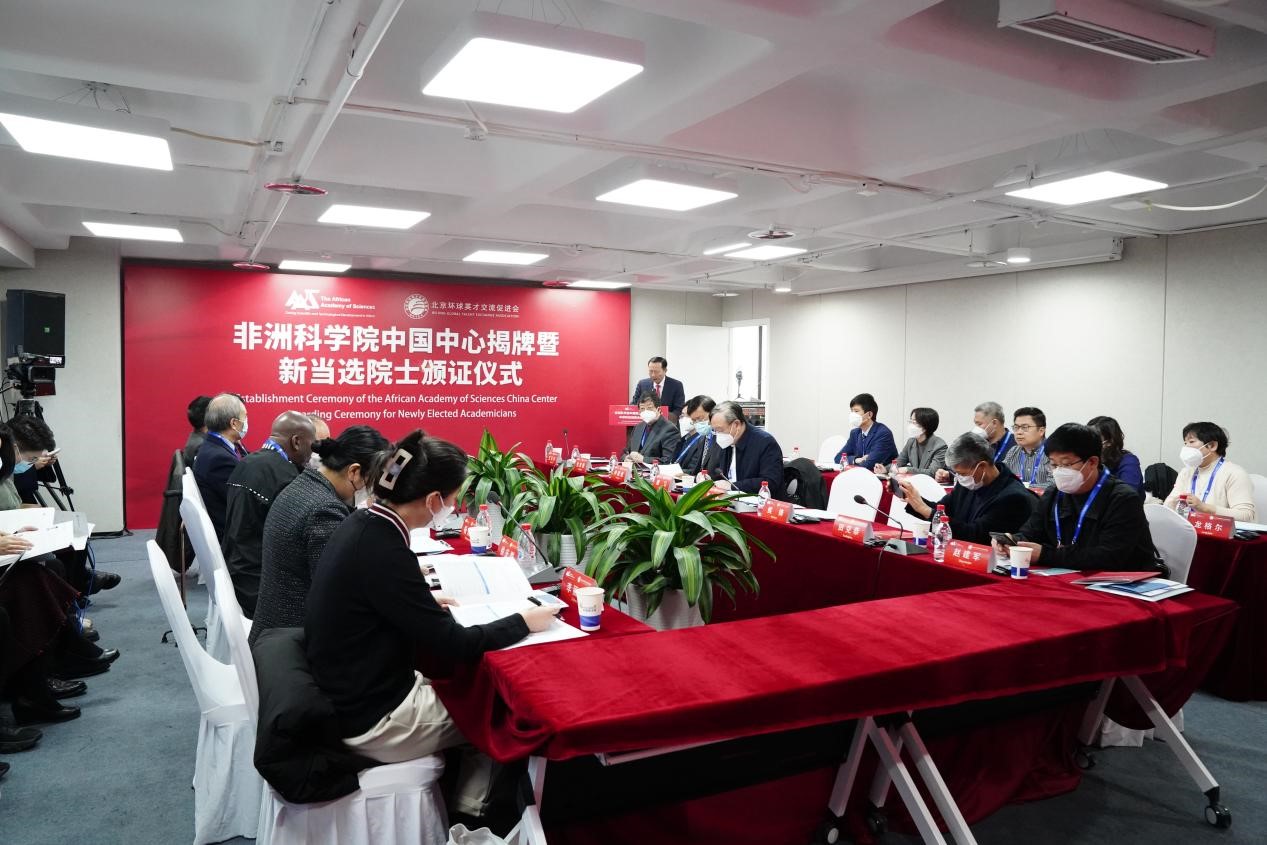
Chinese experts from different research fields discuss the prospects of China-Africa cooperation during a seminar held in Beijing, China, November 13, 2022. /CGTN
Felix Dapare Dakora, president of the AAS, said the event is of great significance for strengthening China-Africa talent exchanges and scientific and technological cooperation in the post-COVID era.
The AAS is a pan-African organization headquartered in Nairobi, the capital of Kenya, aiming at promoting sustainable development in Africa through science, technology and innovation.
So far, the AAS has selected 12 Chinese academicians in research fields such as crop breeding, infectious disease prevention and control, neuroscience, satellite navigation and remote sensing, insect and pest control, water treatment and molecular biology.
Nine of them were newly selected since 2020, who received their certificates at a ceremony on Friday.
"We're very happy to see more and more Chinese colleagues to become academicians of the AAS. Africa and China enjoy long-lasting friendship, and the two sides have cooperation in many aspects of social and economic development," said Dakora.

